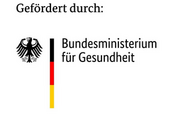Developments in recent years, such as low-cost hardware for enormous computing power and machine learning techniques, have given AI new impetus in medicine as well, and in many medical application fields it is seen as a promising technology for disruptive advances, such as in disease diagnosis, personalized medicine, faster drug development, or even gene editing. However, one of the most essential prerequisites for delivering on this promise is the availability not only of Big Data, but of structured and high-quality data, as well as an environment in which new AI-based applications can be tested against a defined gold standard as a reference in a legally secure framework under real-world conditions. This topic is becoming increasingly relevant, especially against the backdrop of the new Digital Care Act.
The goal is therefore to automate the development of AI-based approaches (from the idea to translation into cross-site clinical routine). To this end, building on the Medical Data Integration Center (MeDIC) at Heidelberg University Hospital, an AI Innovation Center is to be established to build and test a pipeline for the development of AI-based applications.
The DFKI uses the infrastructure of the AI center to transfer an existing AI-based method for detecting diagnoses on image data to the domain of other image data using transfer learning methods. In the second part, DFKI is developing an algorithm that detects the patient’s position in the treatment pathway based on mostly unstructured text documents (information extraction) and image data from routine clinical documentation. This context-specific data is used to optimize diagnostics and therapy.
Partners
Universitätsklinikum Heidelberg
Deutsches Krebsforschungszentrum
Mint Medical GmbH

 Prof. Dr.-Ing. Daniel Sonntag
Prof. Dr.-Ing. Daniel Sonntag
